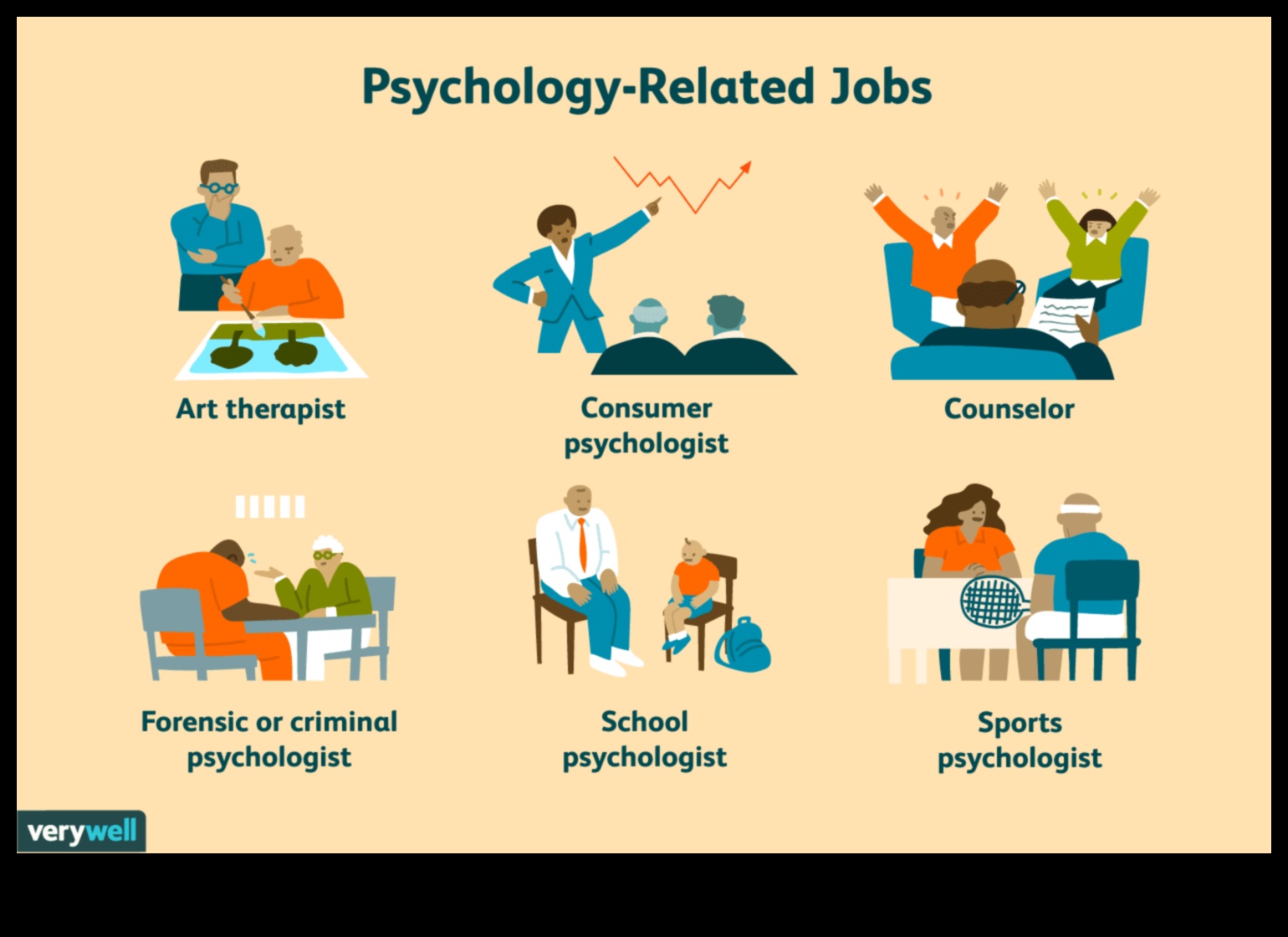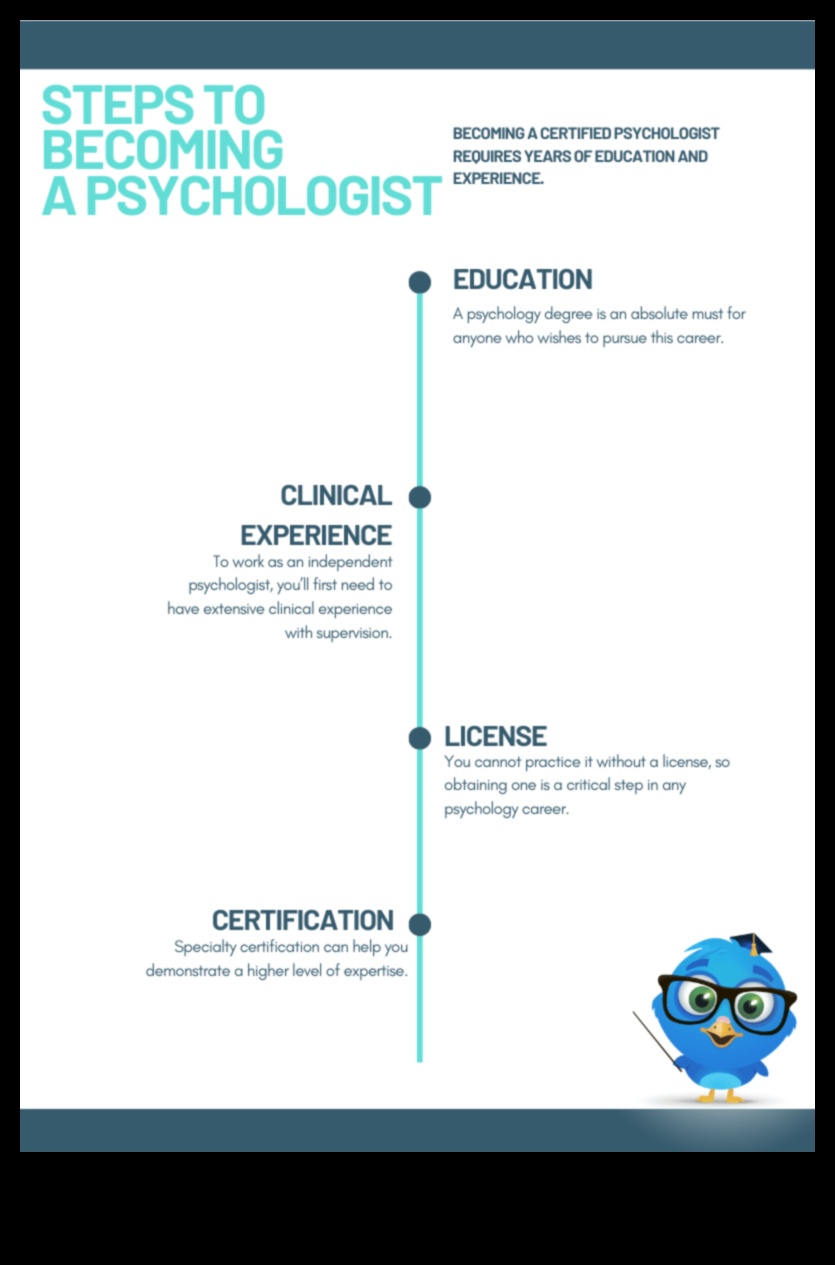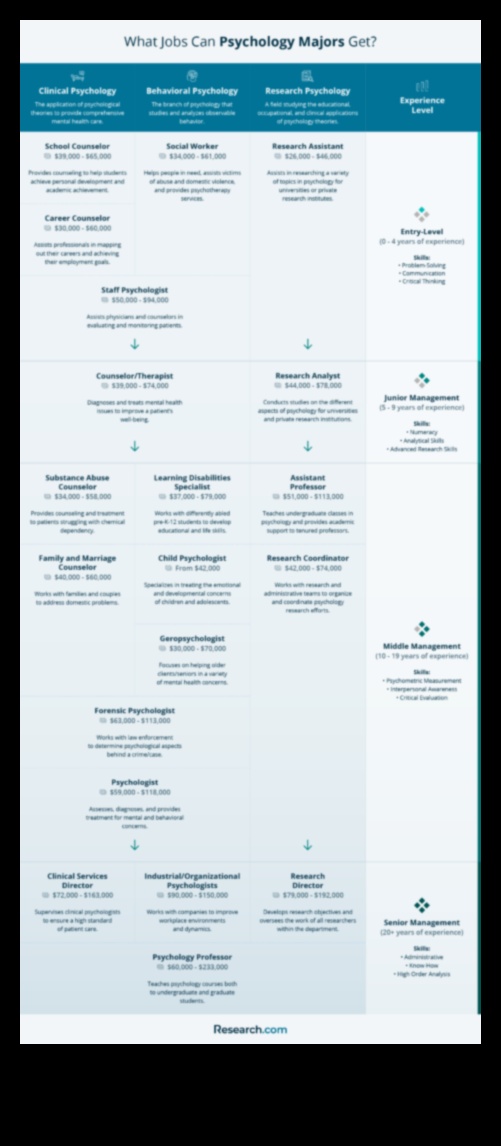
People searching for “what jobs can you get with a phd in psychology” are likely trying to find out what career options are available to them with a PhD in psychology. They may be interested in learning more about the different types of jobs that are available, the salary potential for these jobs, and the required qualifications. They may also be looking for advice on how to get started in a career in psychology.
There are a wide variety of jobs that are available to people with a PhD in psychology. Some of the most common include:
- Clinical psychologist
- School psychologist
- Industrial-organizational psychologist
- Forensic psychologist
- Research psychologist
The salary potential for PhDs in psychology varies depending on the specific job title and the level of experience. However, according to the Bureau of Labor Statistics, the median annual salary for psychologists was $82,180 in 2020.
The required qualifications for getting a job with a PhD in psychology vary depending on the specific job title. However, most jobs will require a PhD in psychology from an accredited program, as well as several years of experience.
If you are interested in getting a job with a PhD in psychology, there are a few things you can do to get started. First, you should make sure that you have the necessary qualifications, such as a PhD in psychology from an accredited program. You should also gain experience by working in a psychology-related field, such as a clinical setting or a research lab. Finally, you should network with people in your field and attend professional conferences to learn about job opportunities.
Getting a PhD in psychology can be a great way to start a rewarding career in psychology. By following these tips, you can increase your chances of getting the job you want.
| Topic | Answer |
|---|---|
| Career opportunities for PhD in psychology | Psychologists can work in a variety of settings, including academia, healthcare, research, and business. Some of the most common career paths for PhDs in psychology include: |
| PhD in psychology salary | The average salary for a PhD in psychology is $76,000 per year. However, salaries can vary depending on the type of job, the location, and the years of experience. |
| PhD in psychology jobs | Some of the most common jobs for PhDs in psychology include: |
| Psychology PhD programs | There are over 400 psychology PhD programs in the United States. The best psychology PhD programs typically have a strong research focus and offer a variety of specializations. |
| Top PhD programs in psychology | Some of the top PhD programs in psychology include: |

II. What is a PhD in Psychology?
A PhD in Psychology is a research-based degree that typically takes four to six years to complete. It is the highest degree in psychology and is awarded by accredited universities and colleges. A PhD in Psychology prepares students for careers in research, teaching, and clinical practice.
PhD programs in Psychology typically require students to complete a series of coursework, research, and a dissertation. Coursework typically covers a wide range of topics in psychology, including research methods, statistics, and clinical psychology. Research involves conducting an original research project and writing a dissertation on the results.
Students who earn a PhD in Psychology have a variety of career options available to them. They may work as researchers in academia, government, or private industry. They may also work as clinicians, providing psychological services to individuals, families, or groups.
III. What are the different types of PhD programs in Psychology?
There are a variety of different PhD programs in Psychology available, each with its own unique focus. Some of the most common types of PhD programs in Psychology include:
* Clinical Psychology PhD programs: These programs prepare students for careers in clinical psychology, which involves diagnosing and treating mental health disorders.
* Counseling Psychology PhD programs: These programs prepare students for careers in counseling psychology, which involves providing psychological support to individuals and groups.
* Industrial-Organizational Psychology PhD programs: These programs prepare students for careers in industrial-organizational psychology, which involves applying psychological principles to the workplace.
* Social Psychology PhD programs: These programs prepare students for careers in social psychology, which involves studying the psychological processes that underlie social behavior.
* Developmental Psychology PhD programs: These programs prepare students for careers in developmental psychology, which involves studying the psychological development of individuals across the lifespan.
* Cognitive Psychology PhD programs: These programs prepare students for careers in cognitive psychology, which involves studying the mental processes involved in cognition.
* Neuroscience PhD programs: These programs prepare students for careers in neuroscience, which involves studying the biological basis of behavior.

What jobs can you get with a PhD in psychology?
There are a variety of jobs that you can get with a PhD in psychology. Some of the most common include:
- Clinical psychologist
- School psychologist
- Industrial-organizational psychologist
- Forensic psychologist
- Research psychologist
The specific job that you get will depend on your interests and qualifications. For example, if you are interested in working with children, you might want to become a school psychologist. If you are interested in working in the business world, you might want to become an industrial-organizational psychologist. If you are interested in working in the legal system, you might want to become a forensic psychologist.
The salary potential for a PhD in psychology varies depending on the job that you get. However, you can expect to earn a starting salary of around \$70,000 per year. With experience, you can earn a salary of over \$100,000 per year.
To get started in a career in psychology, you will need to have a PhD in psychology. You can also get started by getting a master’s degree in psychology and then working as a research assistant or a therapist.
If you are interested in a career in psychology, there are many resources available to help you get started. You can find information on career options, salary potential, and educational requirements on the websites of the American Psychological Association (APA) and the Association for Psychological Science (APS). You can also find information on specific careers by talking to psychologists who are working in those fields.

5. What jobs can you get with a PhD in psychology?
There are many different jobs that you can get with a PhD in psychology. Some of the most common include:
- Clinical psychologist
- School psychologist
- Industrial-organizational psychologist
- Forensic psychologist
- Research psychologist
The specific job that you get will depend on your interests and qualifications. For example, if you are interested in working with children, you might want to become a school psychologist. If you are interested in working in the business world, you might want to become an industrial-organizational psychologist.
The salary potential for a PhD in psychology varies depending on the job that you get. However, you can expect to earn a starting salary of around \$70,000 per year. With experience, you can earn a salary of over \$100,000 per year.
To get started in a career in psychology, you will need to have a PhD in psychology. You will also need to have a strong understanding of the field of psychology and be able to apply this knowledge to your work.
If you are interested in pursuing a career in psychology, there are many resources available to help you get started. You can find information on psychology careers online, at your local library, or by talking to your professors.

What jobs can you get with a PhD in psychology?
There are many different jobs that you can get with a PhD in psychology. Some of the most common include:
Clinical psychologist: Clinical psychologists assess and treat mental health disorders. They work with individuals, couples, and families to help them address their mental health needs.
School psychologist: School psychologists work in schools to help students with learning and behavioral problems. They also provide counseling and support to students and their families.
Industrial-organizational psychologist: Industrial-organizational psychologists work in business settings to improve employee performance and productivity. They conduct research, develop interventions, and provide training to help organizations achieve their goals.
Forensic psychologist: Forensic psychologists work with the legal system to assess and treat criminal offenders. They also provide expert testimony in court cases.
Research psychologist: Research psychologists conduct research on a variety of psychological topics. They publish their findings in academic journals and present their work at conferences.
The specific job opportunities that are available to you with a PhD in psychology will depend on your interests, skills, and experience. If you are interested in a career in psychology, there are many resources available to help you find the right job for you.
Here are a few resources that you may find helpful:
* The American Psychological Association (APA): The APA is the largest professional organization for psychologists in the United States. The APA offers a variety of resources on career opportunities in psychology, including job postings, salary information, and career development tips.
* The Association for Psychological Science (APS): The APS is a scientific society for psychologists. The APS offers a variety of resources on career opportunities in psychology, including research funding opportunities, job postings, and career development tips.
* The Society for Industrial and Organizational Psychology (SIOP): The SIOP is a professional organization for industrial-organizational psychologists. The SIOP offers a variety of resources on career opportunities in industrial-organizational psychology, including job postings, salary information, and career development tips.
VII. The job prospects for PhDs in Psychology
The job prospects for PhDs in Psychology are generally good. According to the Bureau of Labor Statistics, the median annual salary for psychologists was \$82,180 in 2020. The job outlook for psychologists is expected to grow by 14% from 2020 to 2030, which is faster than the average for all occupations.
There are a variety of jobs available for PhDs in Psychology, including:
- Researcher
- Professor
- Clinical psychologist
- Industrial-organizational psychologist
- School psychologist
- Forensic psychologist
- Health psychologist
- Sports psychologist
The specific job you get will depend on your interests and qualifications. If you are interested in research, you could work in a university or research institute. If you are interested in teaching, you could become a professor at a university or college. If you are interested in working with people, you could become a clinical psychologist, industrial-organizational psychologist, school psychologist, or forensic psychologist.
The job prospects for PhDs in Psychology are good, but there are a few things you can do to increase your chances of getting a job. First, make sure your grades are strong. Second, get involved in research and internships. Third, network with people in your field. Fourth, consider getting certified or licensed.
With a PhD in Psychology, you can have a rewarding career helping people.
VIII. The benefits of getting a PhD in Psychology
There are many benefits to getting a PhD in Psychology. These include:
- A higher salary potential.
- More job opportunities.
- A greater sense of accomplishment.
- The opportunity to make a difference in the world.
A PhD in Psychology can open up a variety of career opportunities, including:
- Professor
- Researcher
- Clinical psychologist
- Industrial-organizational psychologist
- School psychologist
With a PhD in Psychology, you can also make a difference in the world by helping people to understand themselves and others better, and by developing ways to improve mental health and well-being.
Getting a PhD in Psychology is a challenging but rewarding experience. If you are passionate about psychology and are willing to put in the hard work, a PhD can be the perfect path for you.
Getting a PhD in Psychology can be a challenging and rewarding experience. However, it is important to be aware of the challenges that you may face before you embark on this journey.
Some of the challenges of getting a PhD in Psychology include:
- The long hours and demanding workload.
- The high cost of tuition and living expenses.
- The competition for research grants and fellowships.
- The stress of writing a dissertation.
- The uncertainty of finding a job after graduation.
Despite these challenges, a PhD in Psychology can be a great investment in your future. A PhD will give you the skills and knowledge you need to pursue a successful career in psychology. It will also open up a variety of career opportunities, both in academia and in the private sector.
If you are considering getting a PhD in Psychology, it is important to weigh the challenges and rewards carefully. If you are passionate about psychology and are willing to put in the hard work, a PhD can be a rewarding and fulfilling experience.
FAQ
Q: What are some career opportunities for PhDs in psychology?
A: PhDs in psychology can find careers in a variety of settings, including academia, research, clinical practice, and government. Some common job titles for PhDs in psychology include:
- Professor
- Researcher
- Clinical psychologist
- School psychologist
- Counselor
Q: What is the salary potential for PhDs in psychology?
A: The salary potential for PhDs in psychology varies depending on the job title, the level of experience, and the location. According to the Bureau of Labor Statistics, the median annual salary for psychologists was $82,180 in 2020. However, salaries can range from $40,000 to $130,000 or more.
Q: What are some of the challenges of getting a PhD in psychology?
A: There are a number of challenges that PhD students in psychology may face, including:
- The long and demanding program of study
- The high cost of tuition and living expenses
- The competitive job market
- The stress of working with challenging clients